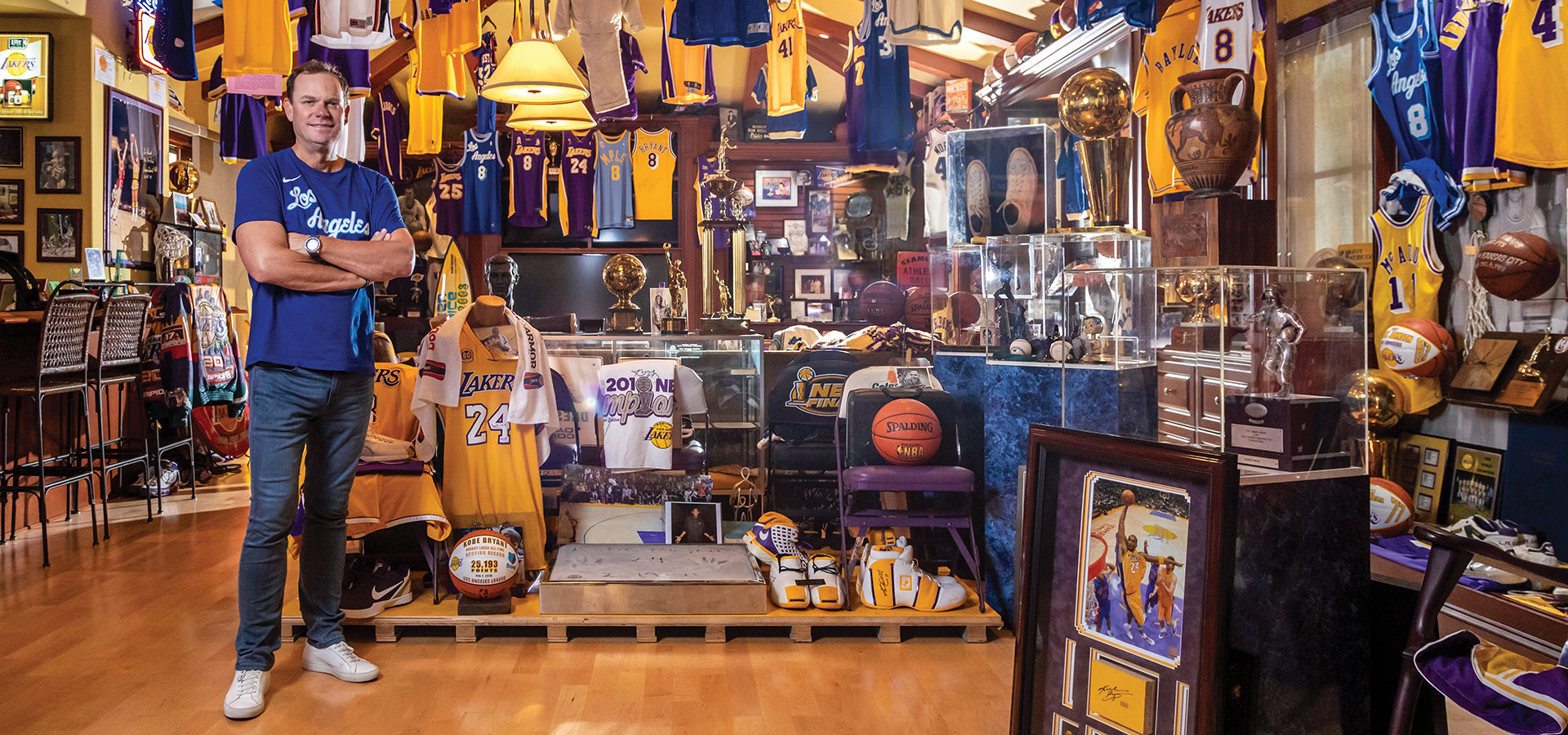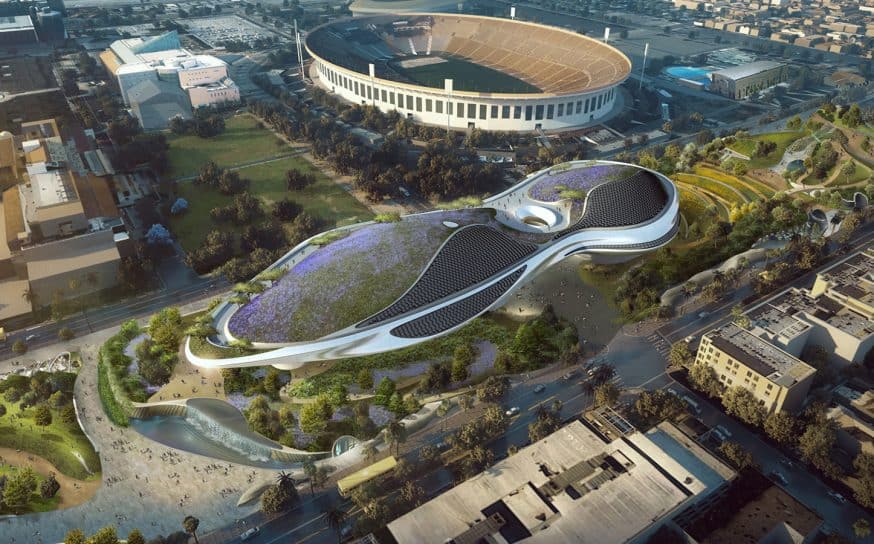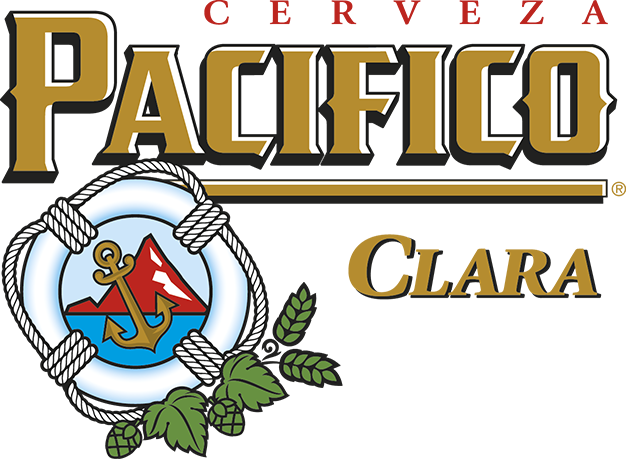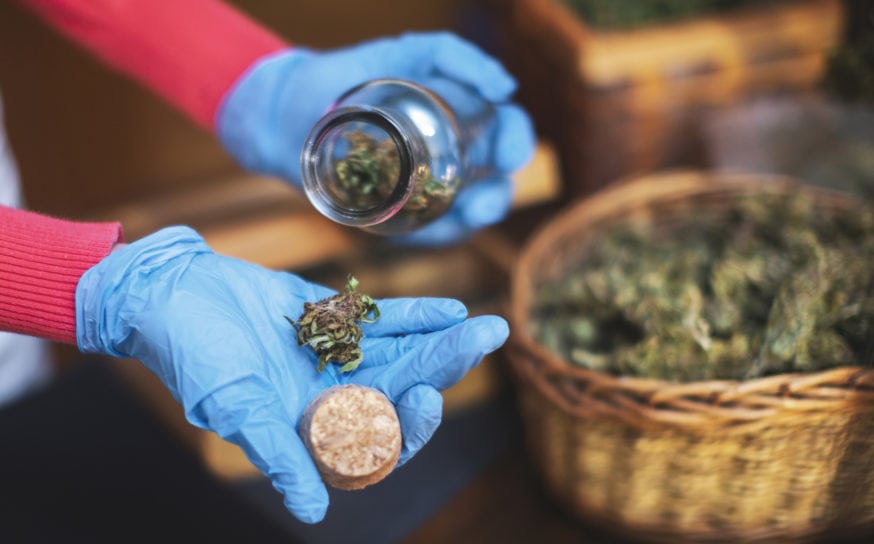David Kohler Turns a Passion into One of the Most Unique Troves in the Country
Franchise opportunities.
-
CategoryArts + Culture, Makers + Entrepreneurs
-
Written byShaun Tolson
-
Photographed byJeff Berting
The Staples Center concourse is teeming with passionate basketball fans before every Los Angeles Lakers home game. Just like the Forum that preceded it, the 19,079-seat arena draws an eclectic crowd of fans, including a smattering of Hollywood A-listers—all of whom are ready to cheer on the home team (though some are also there to see and be seen).
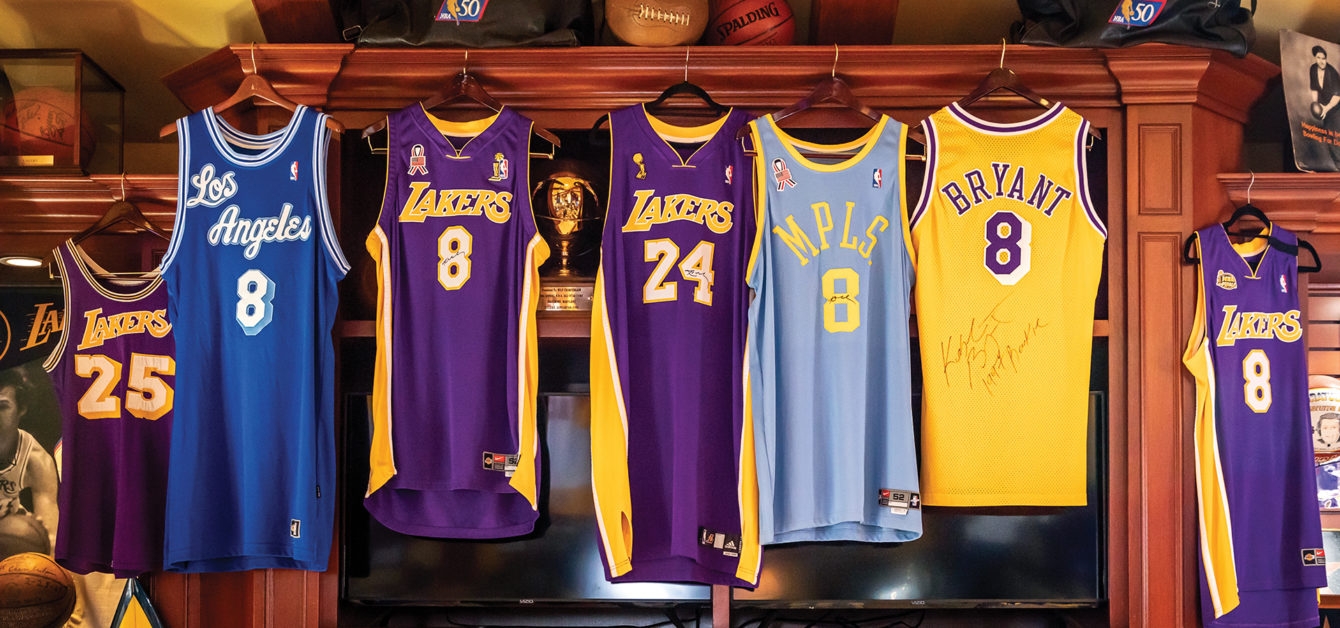
The Staples Center concourse is teeming with passionate basketball fans before every Los Angeles Lakers home game. Just like the Forum that preceded it, the 19,079-seat arena draws an eclectic crowd of fans, including a smattering of Hollywood A-listers—all of whom are ready to cheer on the home team (though some are also there to see and be seen).
David Kohler, president of SCP Auctions, has attended hundreds of games in his lifetime. He’s always there as a basketball fan first and foremost. However, at one home game during the second half of the 2010–2011 season, he took a more vested interest in his own pregame people-watching routine.
From a vantage point not far from an extensive display of historic game-worn jerseys, David keenly observed as families marveled at those uniforms and shared memories of the players whose jerseys were prominently displayed. Many of those game-worn uniforms were awash in the team’s customary purple and gold, but others donning the blue-and-white colorway from the franchise’s early years in Minneapolis were no less eye-catching. They were just more likely to captivate the older fans in attendance.David didn’t need to tour the Staple Center’s temporary exhibit that season to know which jerseys were on display or the meaningful backstories connected to each of them. He knew all of that because each of the jerseys on display was a part of a much larger collection of Lakers memorabilia that he had spent the better part of 30 years assembling. Even describing it as a collection is misleading, at least according to Lawrence Tanter, the Lakers’ public-address announcer.
“The ‘Lakers Collection’ doesn’t do this justice,” he declared back in the early 2000s when he visited David’s Southern California home. “You should call this the ‘Lakers Shrine’ because that’s what it is.”
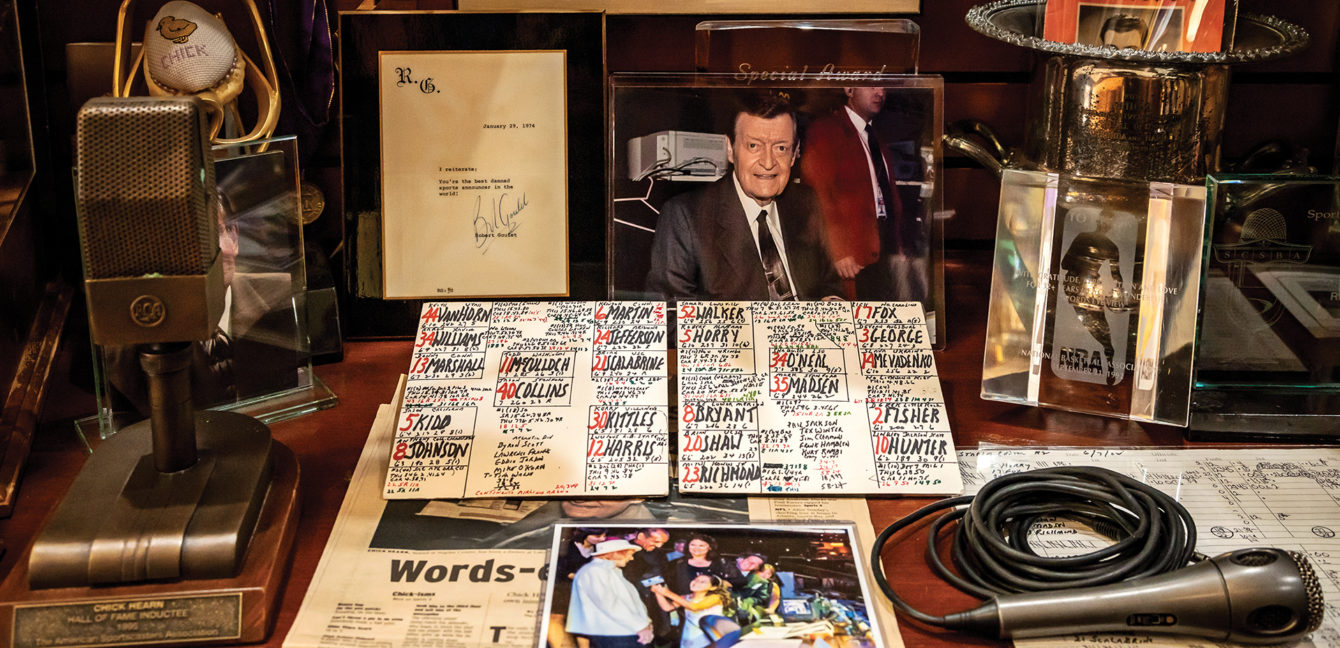
Sports Shrine
When David isn’t watching a Lakers game from a seat inside the Staples Center, there’s a good chance he’s following the televised action from the center of that shrine. When seated on the couch inside his expansive showroom and entertaining space, he is surrounded by dozens of game-worn jerseys—not to mention other pieces of memorabilia and historic artifacts that relate to the team and collectively tell the franchise’s 74-year history.
Spread out across more than 1,200 square feet and comprised of thousands of items, the shrine that David has constructed can tell a fascinating story about the evolution of the Lakers franchise—and professional basketball—as long as visitors know where to look. For example, the black Samsonite suitcase boldly branded “Los Angeles Lakers” and fashioned with a vintage United Airlines tag belonged to Wilt Chamberlain during the 1960s. “It’s just cool,” David says, “because that thing went everywhere with him.” As did Chamberlain’s passport, which David also owns. “This is when he traveled around the world with the Harlem Globetrotters. At that point, it was his first payday. He didn’t have the wealth he’d have later. But he knew that he was going to play pro ball, and he knew that he was going to dominate from his rookie year. It’s just history. Everything has a story.”
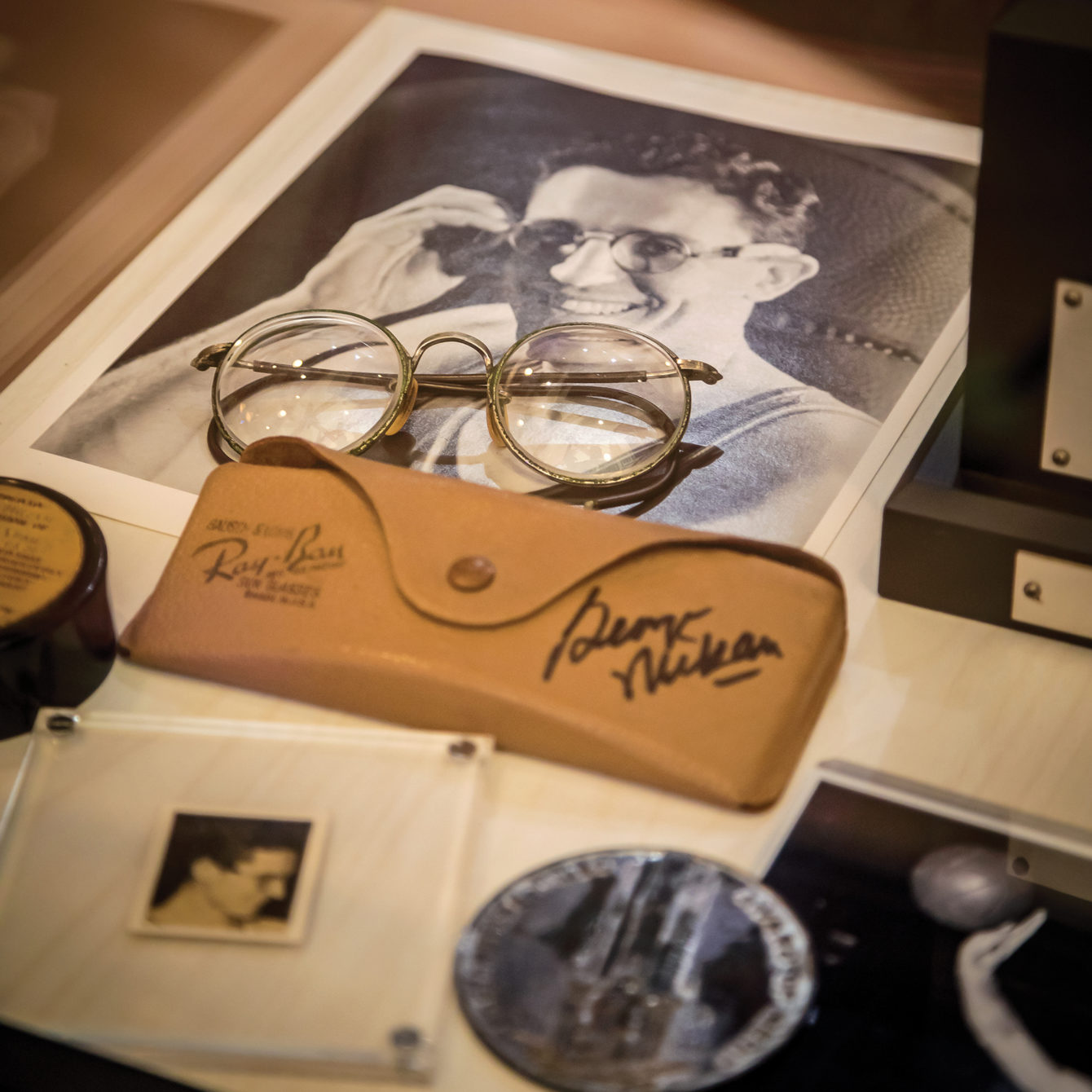
The black medical bag used by former L.A. Lakers team trainer Frank O’Neill from 1960 to 1974 is no exception. David acquired it directly from Frank, who also shared with him stories of players and team officials renting overnight rooms in large homes located a mile or so away from the arenas in which they played while on the road. “Now players are flying first class on chartered planes, and they sleep in hotels and the media’s all over them,” he says. “But most of these guys in the 1950s had second jobs.”
Citing the importance of an artifact like Frank’s medical bag and all of the supplies that it still holds, David explains, “Everything has a part of this very historical franchise called the Lakers. It’s not just having the jersey or the championship trophy.”
That being said, David’s private showroom is home to plenty of more recognizable items too. Several of Magic Johnson’s game-worn jerseys hang in a replica locker, along with his autographed shoes and some of the awards he won throughout his career. Elsewhere visitors may stumble upon Kareem Abdul-Jabbar’s game-worn (and now autographed) goggles. They can walk across a section of the L.A. Forum’s original wood floor and sit in seats taken from the old venue. And if they look up, they’ll see attached to the wall one of the two rims (with netting) from the Lakers’ final home game at that cherished downtown arena.However, Lakers fans would truly be remiss if they didn’t take in the contents of a display case dedicated to the team’s 1972 NBA Championship. Alongside a pennant signed by the team’s head coach Bill Sharman and an empty champagne bottle—the contents of which were enjoyed and sprayed throughout the locker room after the decisive fifth game of the NBA Finals—the display’s crown jewel is the actual game ball, which David acquired from Bill. “That was the first title the Lakers won in Los Angeles,” David explains, “and it means a lot to include that stuff to help tell the story.”
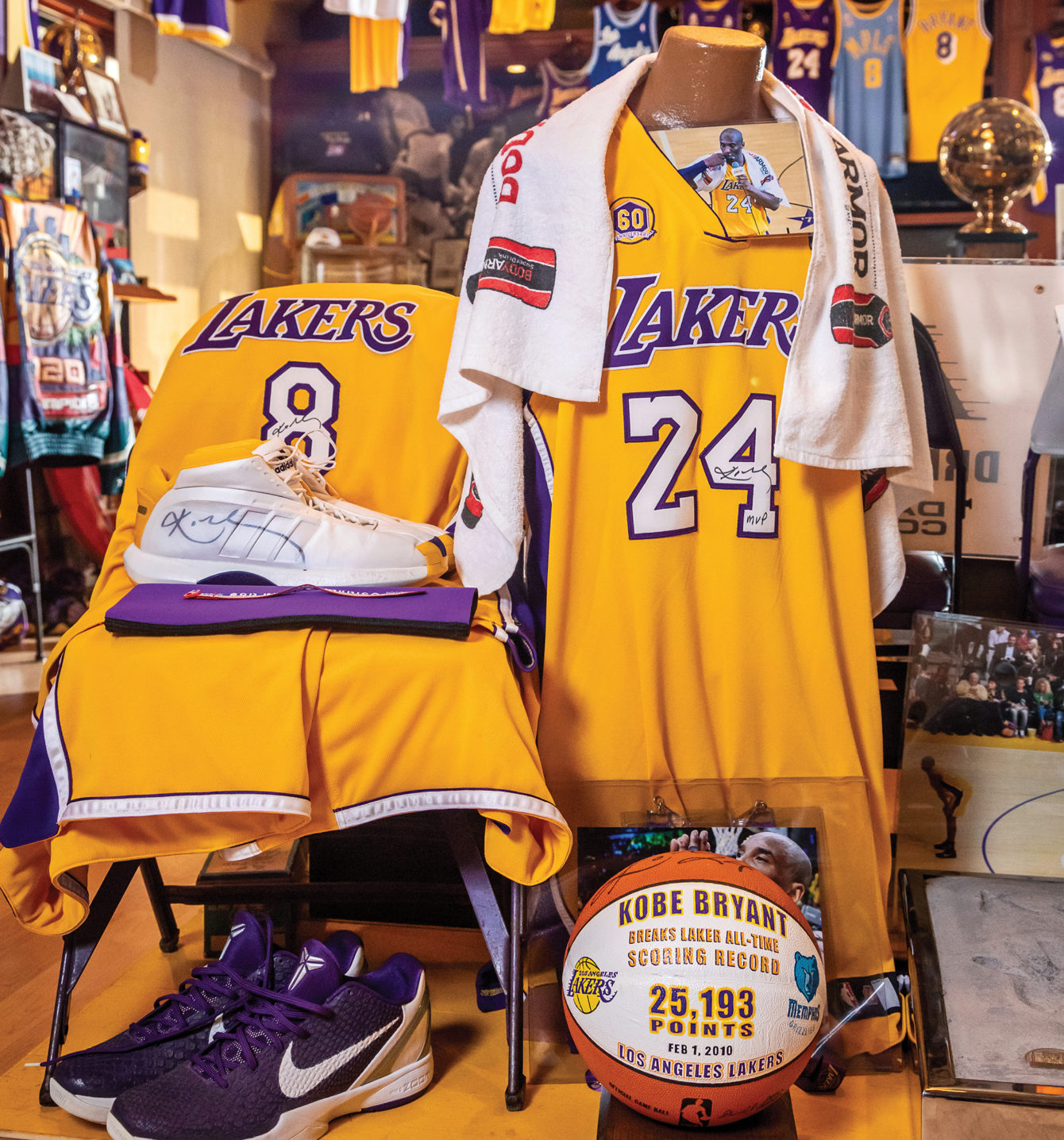
Humble Beginnings
David first entered the business of sports memorabilia as a sophomore in high school, attending baseball card trade shows and subscribing to card-collecting magazines. As a 17-year-old, he didn’t have grand entrepreneurial ambitions centered on sports memorabilia. When he enrolled at UC Irvine and later transferred to Cal State Fullerton, he did so as a premed student.
During those undergraduate years, David opened a 350-square-foot sports memorabilia store, and soon the growth of the business and its long-term potential began to compete with his academic focus. “In college I had aspirations to be a doctor,” he says. “But in the meantime I was working the business, and I was thinking about shows on the weekend or collections that I needed to see. It was pulling me in two different directions.”
Ultimately, David pursued the business he already knew. He dropped out of school and made sports memorabilia his profession. “We developed the auction company later,” he says, “and it just grew and grew and grew.”
Such is also the case for how his personal Lakers memorabilia collection came to be. Within a few years of opening his storefront, David was struck with an idea. Wouldn’t it be great, he thought, to find a few game-worn Lakers jerseys? He initially set his sights on uniforms worn by Magic Johnson and Kareem Abdul-Jabbar, and thanks to his burgeoning reputation, it wasn’t long before he tracked them down.“I put them on the wall, and that was the start of it,” he recalls. “It just went from there. But I never imagined that I would end up with a few hundred jerseys.”
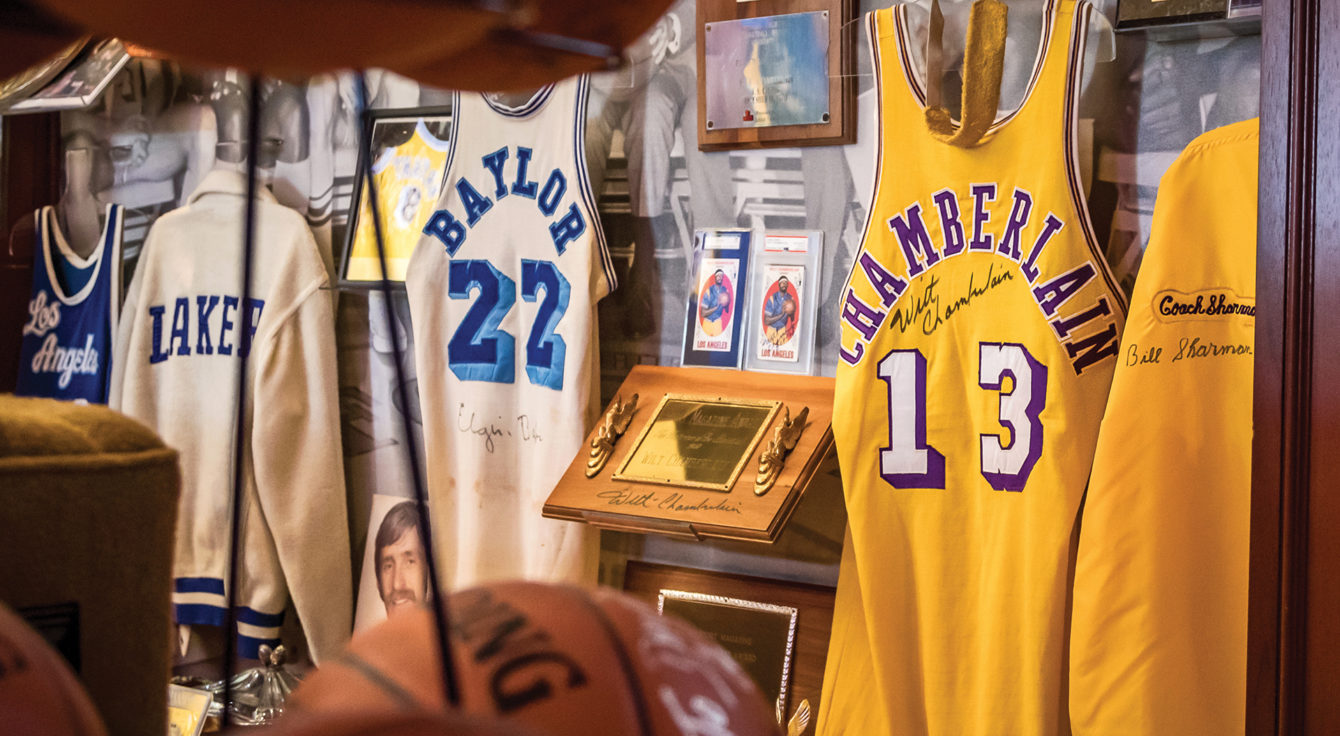
The real coup, in David’s estimation, occurred during the mid-1990s when NBA Hall of Famer George Mikan contacted the Lakers and asked if the team had a museum. By that point in time, key executives within the Lakers organization knew of the significant collection that David was putting together. So when George asked if the team had an interest in acquiring the personal artifacts he had saved from his playing days, the team directed him to David.
“I jumped on a plane two days later and bought his entire collection,” David recalls. “All his championship trophies and jerseys—even his glasses. He was the first star of the league. Not of the Lakers, but of the league. He was the guy.”He continues, “That’s what really got me going for getting all of this old Lakers memorabilia—whether it was from the players in the ’60s and ’70s at the Forum or back in Minneapolis or today with Anthony Davis and LeBron [James].”
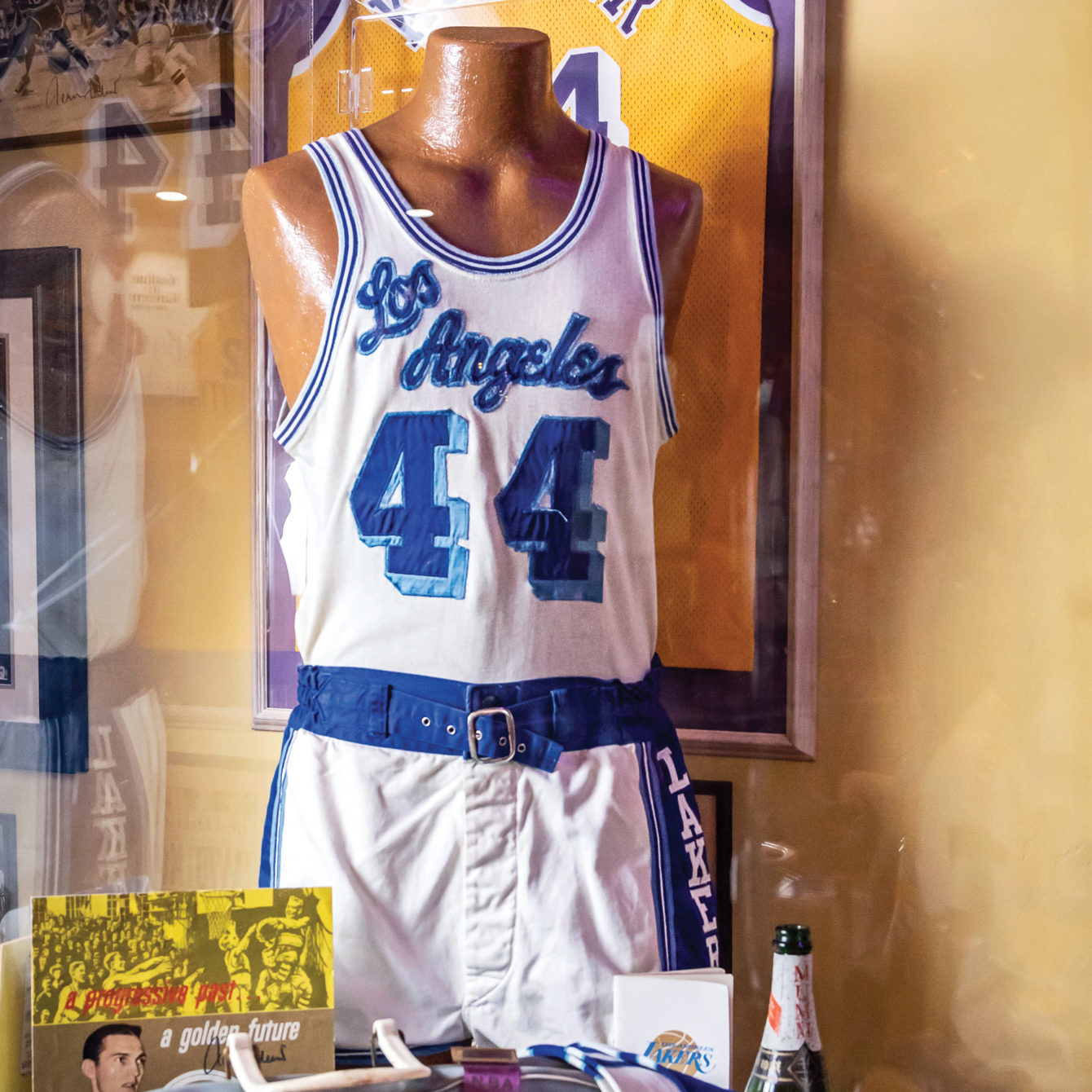
Invaluable Opportunities
Now 40 years into his quest to build a collection of memorabilia that tells the comprehensive story of the Lakers basketball franchise from 1947 all the way to the present day, David has acquired artifacts that he likely would have deemed unobtainable earlier in his career. These include the microphone used by Lakers play-by-play sportscaster Chick Hearns during his final game broadcast in 2002 and the pair of Adidas sneakers Jerry West wore during every game of the Lakers’ record-setting championship season in 1972.Despite the joy and sense of accomplishment those acquisitions have brought David, the opportunities the Lakers Shrine has given him to meet some of the team’s star players—from all eras—is even more thrilling to the now-60-year-old collector. “When your doorbell rings and you answer the door to see Jerry West standing there, you kind of want to pinch yourself. I wanted to be Jerry West when I grew up,” he says with a laugh. “All kids have heroes in the sports they loved growing up, and Jerry West was mine.”
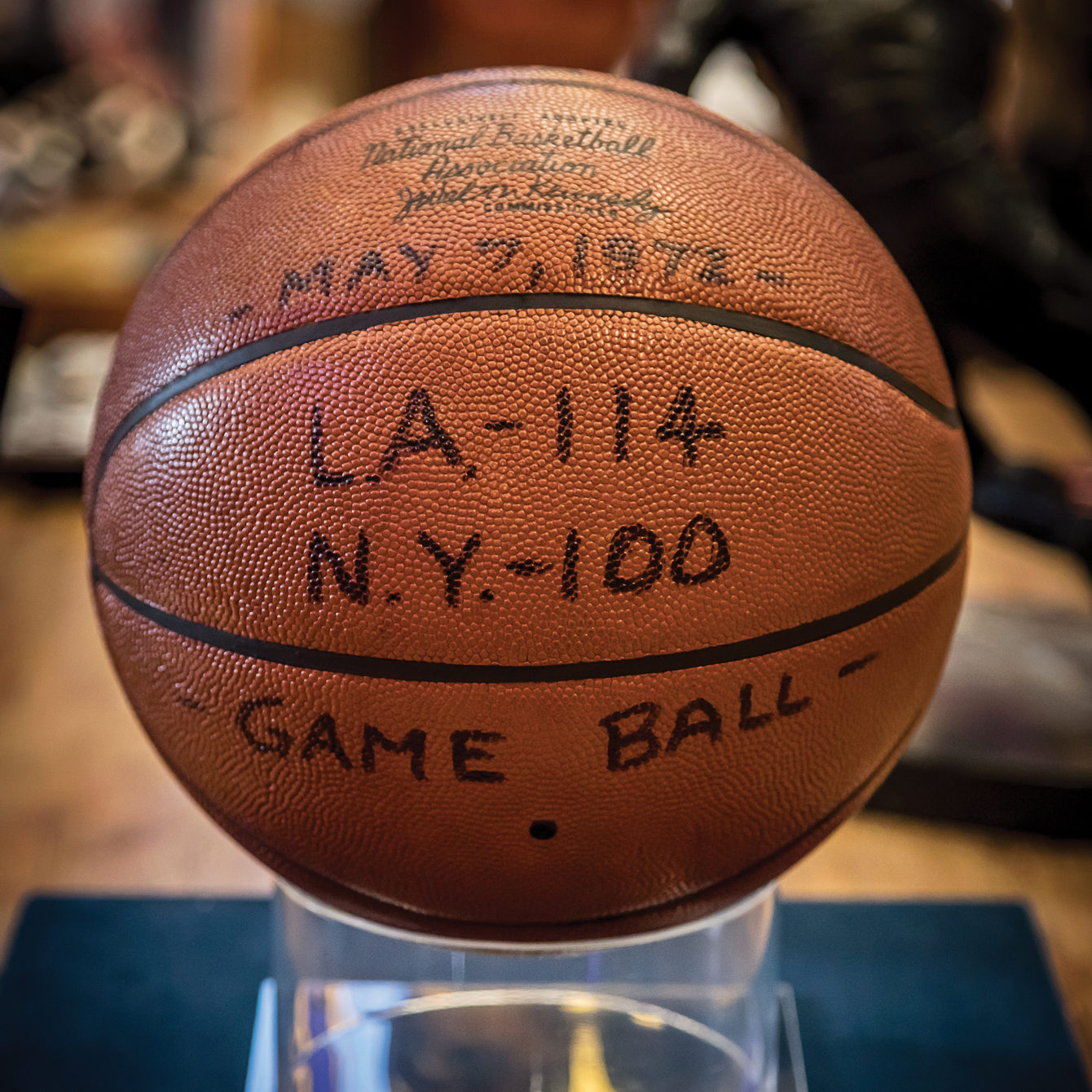
The Lucas Museum of Narrative Art Officially Breaks Ground
The complex is being built near USC in Exposition Park.
Hey, Weekend: Surf’s Up in Huntington Beach
Awesome digs, eats and the US Open of Surfing in August.
Remembering how ’70s San Francisco Pot Kitchens Impacted the AIDS Crisis
And the parallels we can draw to the COVID-19 pandemic.
Get the Latest Stories




